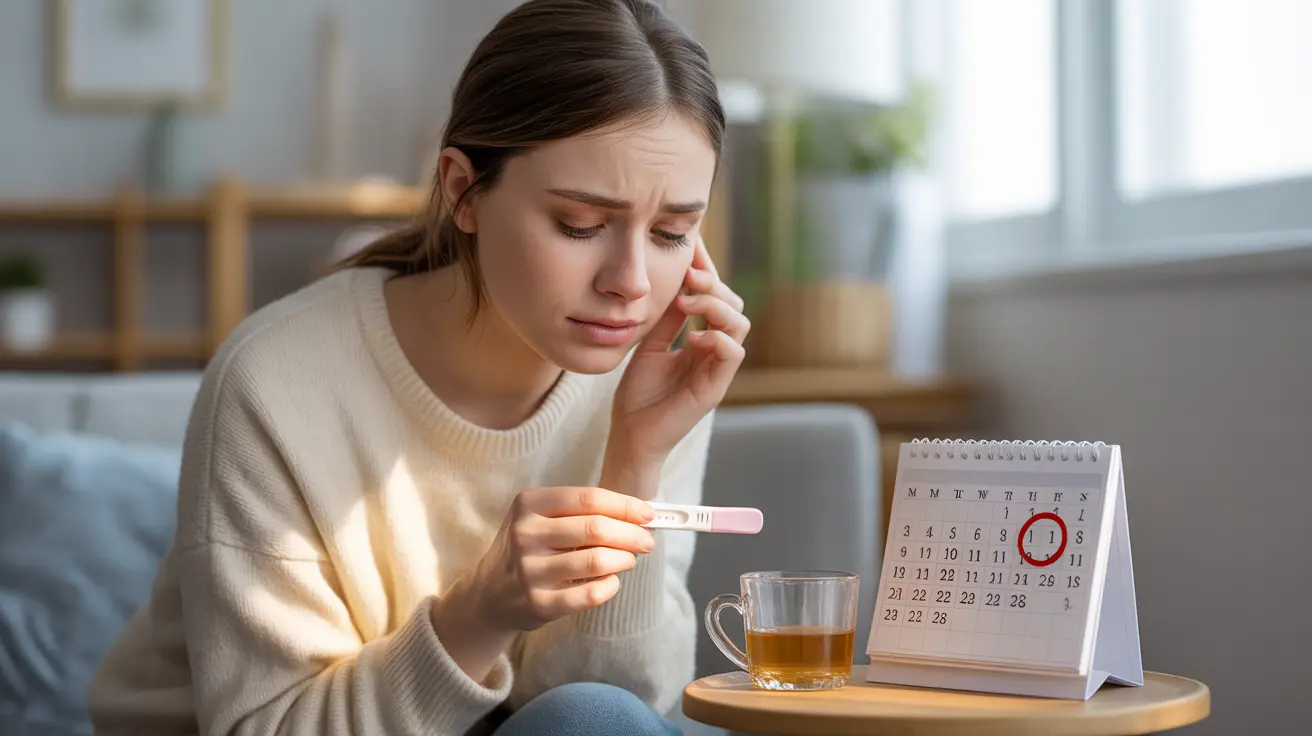If you're experiencing a late period but getting negative pregnancy test results, you're not alone. This situation can be confusing and concerning, but there are many potential explanations beyond pregnancy. Understanding the various factors that can affect your menstrual cycle can help provide clarity and peace of mind.
In this comprehensive guide, we'll explore the common reasons for a delayed period despite negative pregnancy tests, discuss test accuracy, and help you understand when it's time to consult a healthcare provider.
Common Causes of a Late Period with Negative Pregnancy Test
Several factors can contribute to menstrual delays while pregnancy tests remain negative:
Stress and Emotional Factors
Stress is one of the most common causes of menstrual irregularities. When you're under significant stress, your body produces cortisol, which can interfere with the hormones that regulate your menstrual cycle. Work pressure, relationship issues, or major life changes can all impact your cycle timing.
Lifestyle Changes
Sudden changes in your daily routine can affect your menstrual cycle, including:
- Changes in sleep patterns
- New exercise routines, especially intense workouts
- Significant weight fluctuations
- Travel across time zones
- Dietary modifications
Medical Conditions
Various health conditions can cause irregular periods:
- Polycystic ovary syndrome (PCOS)
- Thyroid disorders
- Hormonal imbalances
- Endometriosis
- Primary ovarian insufficiency
Understanding Pregnancy Test Accuracy
Home pregnancy tests are generally reliable, but several factors can affect their accuracy:
Timing Considerations
Testing too early or at the wrong time of day can lead to false negatives. For most accurate results, wait until at least the first day of your missed period and use first-morning urine.
Test Quality and Storage
Factors that can compromise test accuracy include:
- Expired tests
- Improper storage conditions
- Incorrect test usage
- Diluted urine samples
When to See a Healthcare Provider
While occasional cycle irregularities are normal, certain situations warrant medical attention:
Immediate Consultation
Seek medical care if you experience:
- Periods consistently more than 7 days late
- Severe abdominal pain
- Unusual bleeding patterns
- Multiple negative tests but continued pregnancy symptoms
Regular Check-ups
Schedule a routine check-up if you notice:
- Increasing cycle irregularity
- Changes in period flow or duration
- New persistent symptoms
Frequently Asked Questions
- What are common reasons for a late period when my pregnancy test is negative?
Common reasons include stress, lifestyle changes, hormonal imbalances, thyroid disorders, PCOS, and intense physical activity. Medications and recent changes in birth control can also affect your cycle.
- How accurate are pregnancy tests if my period is late but the result is negative?
Home pregnancy tests are typically 97-99% accurate when used correctly. However, testing too early, using diluted urine, or using expired tests can lead to false negatives. Consider retesting after a few days if your period remains absent.
- Can stress or lifestyle changes cause a late period with a negative pregnancy test?
Yes, stress and lifestyle changes are common causes of menstrual delays. Changes in sleep patterns, diet, exercise routines, or experiencing emotional stress can all affect your cycle timing while not indicating pregnancy.
- When should I see a doctor if my period is late but my pregnancy test is negative?
Consult a healthcare provider if your period is more than 7 days late, you experience severe abdominal pain, have multiple negative tests but pregnancy symptoms, or notice significant changes in your cycle regularity.
- Could medical conditions like PCOS or thyroid problems cause a late period with a negative pregnancy test?
Yes, medical conditions such as PCOS, thyroid disorders, and other hormonal imbalances can cause irregular or missed periods while pregnancy tests remain negative. These conditions require proper medical evaluation and management.




